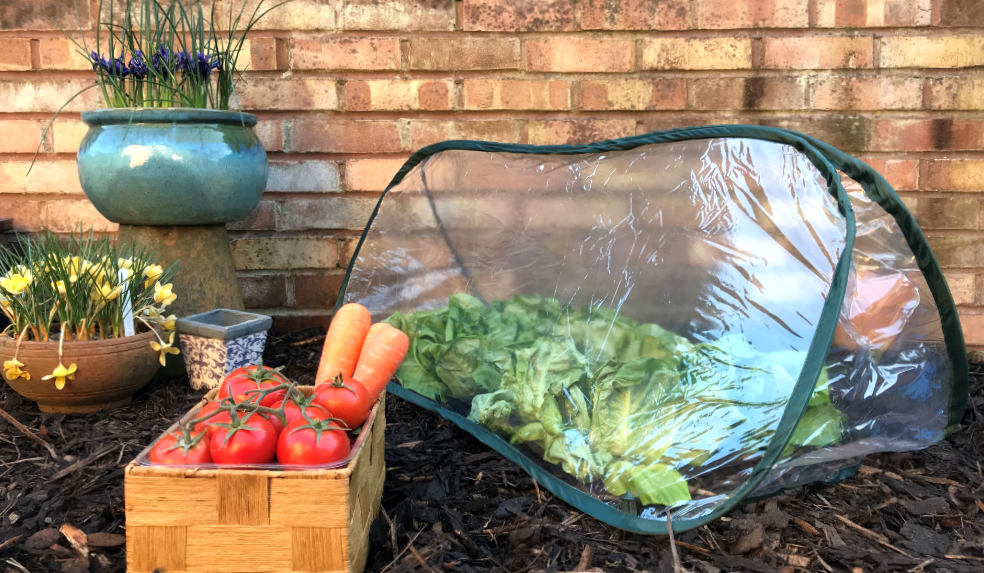How to Grow Crops in a Poly Tunnel - A Beginner's Guide
Check out our handy guide to growing fruit and vegetables in a polytunnel - from how to build a poly tunnel to what to grow in them, as well as tips on how to get the most from your home or allotment grow tunnel setup.

What is a polytunnel and why are they useful?
As the name suggests, poly tunnels are tunnel-shaped structures covered in polythene or similar plastic sheeting. In general they are fairly large structures that both extend the length of your growing season and expand the range of crops you can grow by taking full advantage of the sun's rays to create a warm microclimate and ripen crops. Indeed, it is possible to grow crops year-round in a polythene grow-tunnel, as well as fruit such as peaches and nectarines that would otherwise struggle in the Britich climate. They have the added advantage of protecting crops from wind, rain, frost, birds and other garden pests, meaning fewer losses and more goodies for the kitchen table!
Protect fruit, veg, flowers & plants in seconds with our wide range of practical and decorative garden cloches
What are the benefits of a cloche?
The key advantage of cloches is their size and flexibility. Being light and small, they can be squeezed into corners, in-between grow tunnels or fruit cages, on sections of raised beds or over dainty little grow patches to protect individual plants or grow an extra few rows of strawberries, salads and other fruit & veg. Unsurprisingly, they are especially popular with gardeners living in cities or large towns where outdoor space is limited.



What types of cloches are available?
The traditional type of cloche is a bell-shaped cover (cloche means 'bell' in French) for individual plants. These can range from functional plastic to something more decorative and ornamental, such bamboo or wrought iron. Longer triangular or rectangular cloches are a more recent development and are used to cover entire rows of plants or veg patches - albeit remaining small and easy to move around. Anything larger than that really falls under the banner of grow tunnels or poly tunnels, which cover more significant growing patches but are not as light or portable.
Our attractive, sustainable bamboo cloches cover individual plants and lend a great natural look to the garden
How to use your cloche correctly
Bell cloches made of either plastic or glass are especially prone to overheating, which can damage plants. If using a traditional bell cloche, make sure to carefully monitor plant health, removing or propping up your cloche periodically for ventilation and to give plants a chance to breathe. Storage space can also be an issue with hard frame cloches, so make sure you have enough room in your shed or greenhouse. Alternatively, you could choose a pop up cloche as they can be folded up and stored out of season.
Check out our easy to assemble, easy to store pop up garden cloches in net, insect net, poly and fleece
How do gardeners use cloches?
Cloches have a wide range of uses in the garden or on the allotment, but a few key applications include:
• Covering cucumbers and peppers in summer to prevent diseases caused by rain
• Protecting rows of low growing plants including strawberries, cabbages and salad crops
• Covering individual plants in ornamental gardens
• Ripening and finishing off crops such as tomatoes and peppers in late summer
• Raising soil temperature by up to 10 degrees for earlier planting out of up to 3-4 weeks
• Rain and frost protection for autumn sown crops such as carrots or chicory







